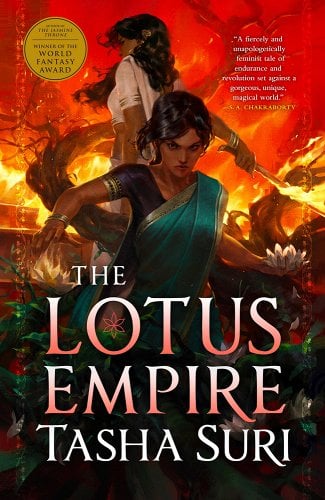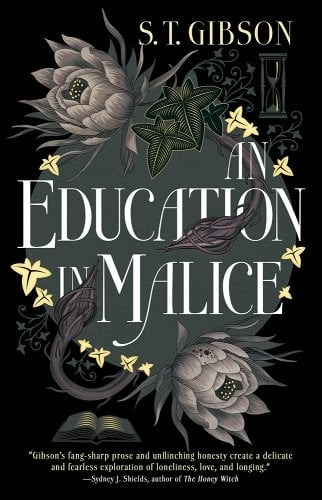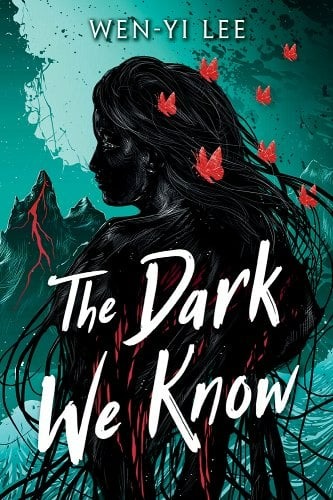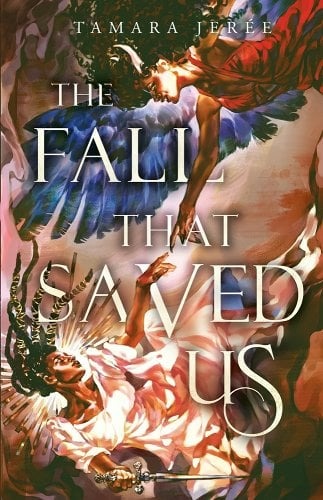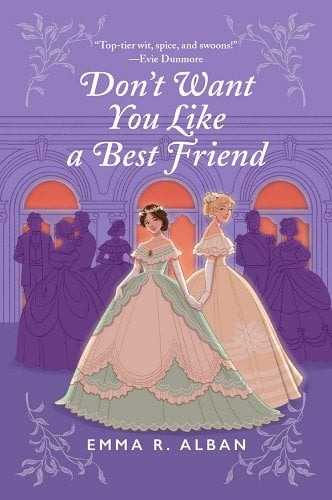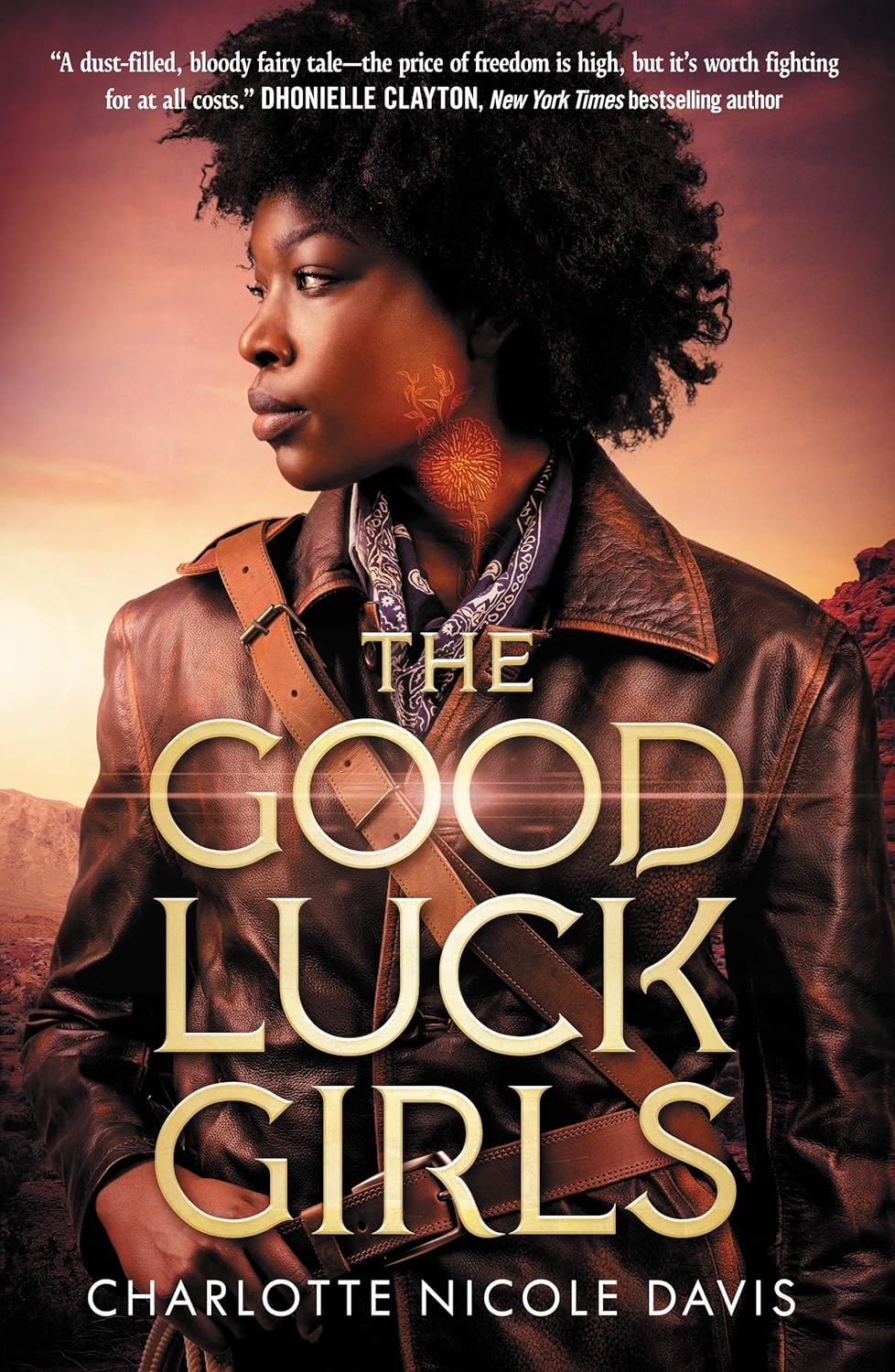In 2021, three brilliant, yellow-covered epic fantasy books came out, all of them with sapphic leads, and thus the Sapphic Trifecta was born. I have read and loved them all (and talked about them here, along with several other Lesbrarians), but I think if I were to pick a favorite, I would have to say TheRead More
All of the Sapphic Vampires, None of the Victorian Homophobic Overtones: An Education in Malice by S. T. Gibson
Like many queer women, I’m sure, I have a strange relationship with the original Carmilla. On the one hand, sapphic vampires are objectively sexy. On the other hand, the way the danger she poses is framed as inextricably linked to her queerness (and her foreignness) is, well, unpleasant, to say the least. I always say thatRead More
A Small-Town Haunting: The Dark We Know by Wen-yi Lee
Wen-yi Lee’s The Dark We Know follows Isadora Chang, an art student who left her small hometown after the deaths of two of her best friends. Two years later, she returns for the funeral of her abusive father, where she encounters her last surviving friend, Mason. Mason tells her that he suspects their friends were in fact murderedRead More
A Wing-Woman Rom-Com: Sorry, Bro by Taleen Voskuni
Buy this from Bookshop.org to support local bookstores and the Lesbrary! After ending her long-term relationship with her non-Armenian boyfriend, Nar decides to agree to let her mother help her find a new boyfriend among the eligible Armenian bachelors of San Francisco. She plans to spend the next month at local Explore Armenia events, meetingRead More
A Rivals to Lovers Soccer Romance: You Don’t Have a Shot by Racquel Marie
Buy this from Bookshop.org to support local bookstores and the Lesbrary! Racquel Marie’s You Don’t Have a Shot is a YA romance that centers around Valentina Castillo-Green, a high school soccer star whose life revolves around the sport. After an abrupt end to her junior year soccer season, Vale ends up at soccer camp, co-captaining a teamRead More
A Brutal and Brilliant Space Opera: Some Desperate Glory by Emily Tesh
Buy this from Bookshop.org to support local bookstores and the Lesbrary! I thought about reviewing Emily Tesh’s Some Desperate Glory on here last month, right after I finished reading it, but I decided against it because I couldn’t figure out how to talk about in any sort of coherent way. My initial Goodreads review was mostly swearingRead More
An Emotional Demon Hunter Romance: The Fall That Saved Us by Tamara Jerée
Buy this from Bookshop.org to support local bookstores and the Lesbrary! Tamara Jerée’s The Fall That Saved Us centers around Cassiel, a former demon hunter who has left her abusive family behind in favor of a quiet life in a little bookshop she now runs. When a succubus named Avitue shows up one day, the two fallRead More
A Sapphic, Victorian Parent Trap: Don’t Want You Like a Best Friend by Emma R. Alban
Buy this from Bookshop.org to support local bookstores and the Lesbrary! Pretty much as soon as I discovered Emma R. Alban’s Don’t Want You Like a Best Friend, I was excited to read it. From the frothy cover to the Taylor Swift lyric title (admittedly I don’t actually know Taylor Swift’s music well enough to recognize thatRead More
Jamaican Joan of Arc: So Let Them Burn by Kamilah Cole
Buy this from Bookshop.org to support local bookstores and the Lesbrary! I first saw Kamilah Cole describe her debut, So Let Them Burn, as a Jamaican Joan of Arc, which was enough to grab my attention even before the book had a cover. To be more specific, So Let Them Burn is the first book in a YARead More
An Underrated Fantasy Western: The Good Luck Girls by Charlotte Nicole Davis
Buy this from Bookshop.org to support local bookstores and the Lesbrary! I am actually going to talk about two books in this review, because while I thought the first book was fantastic, it was not until I finished the sequel that I fully realized exactly how good I thought these books were. The Good LuckRead More
